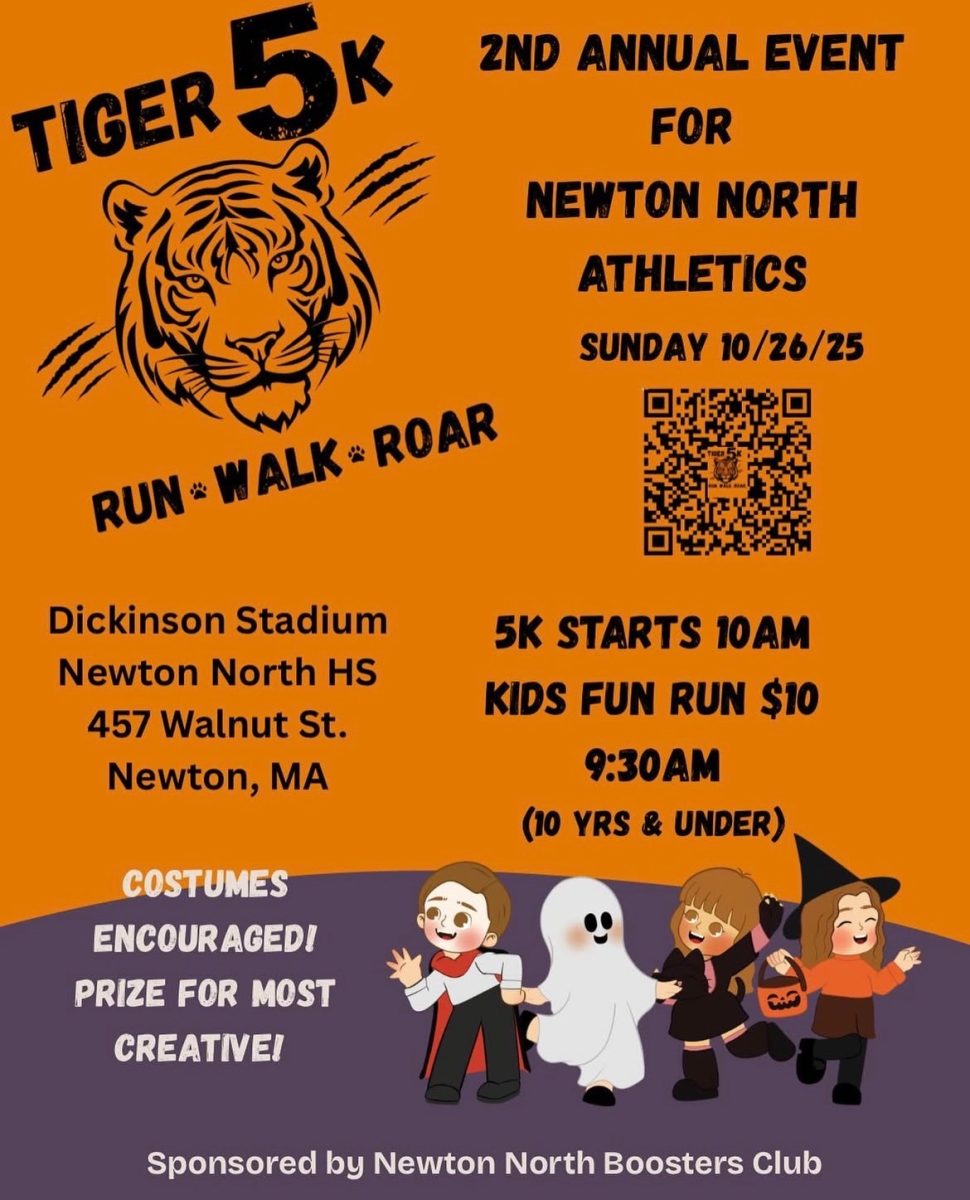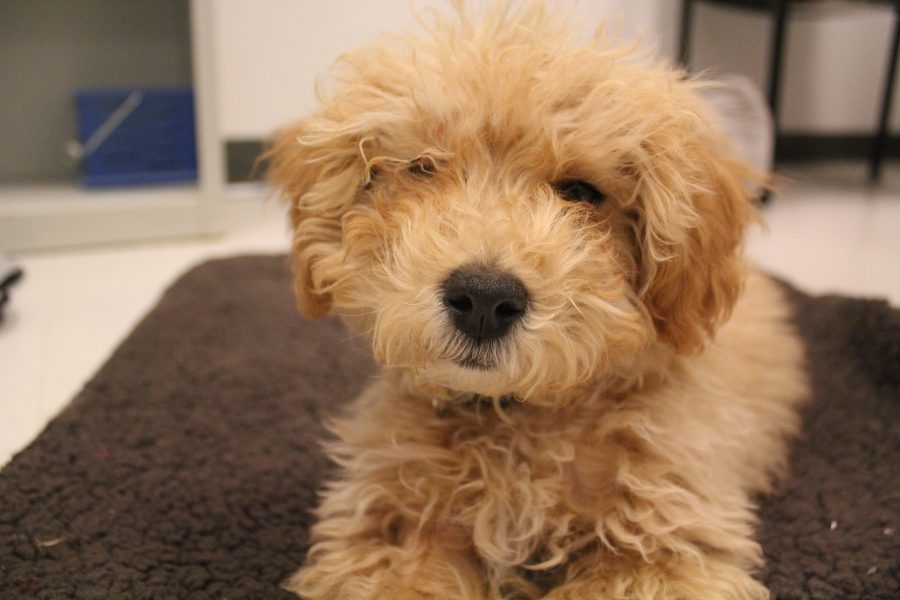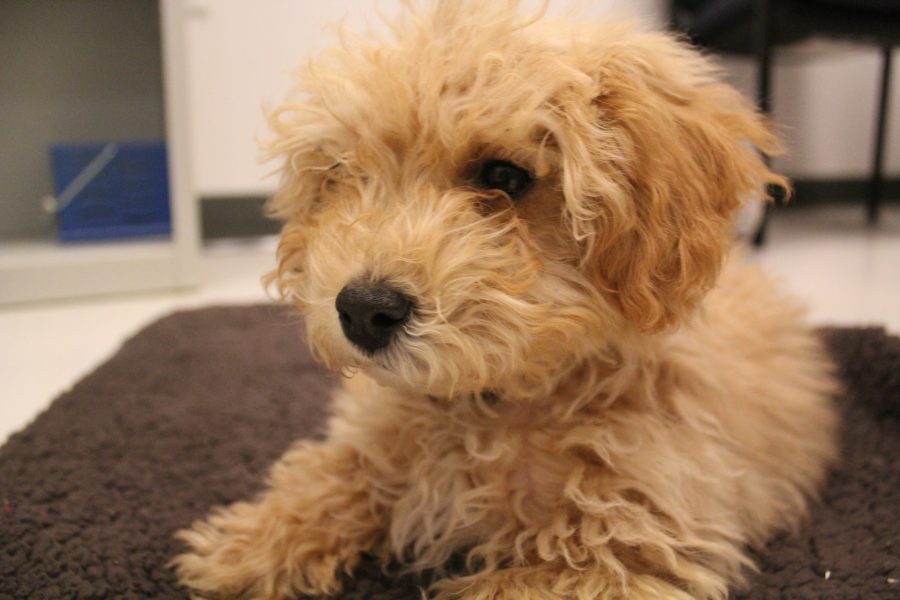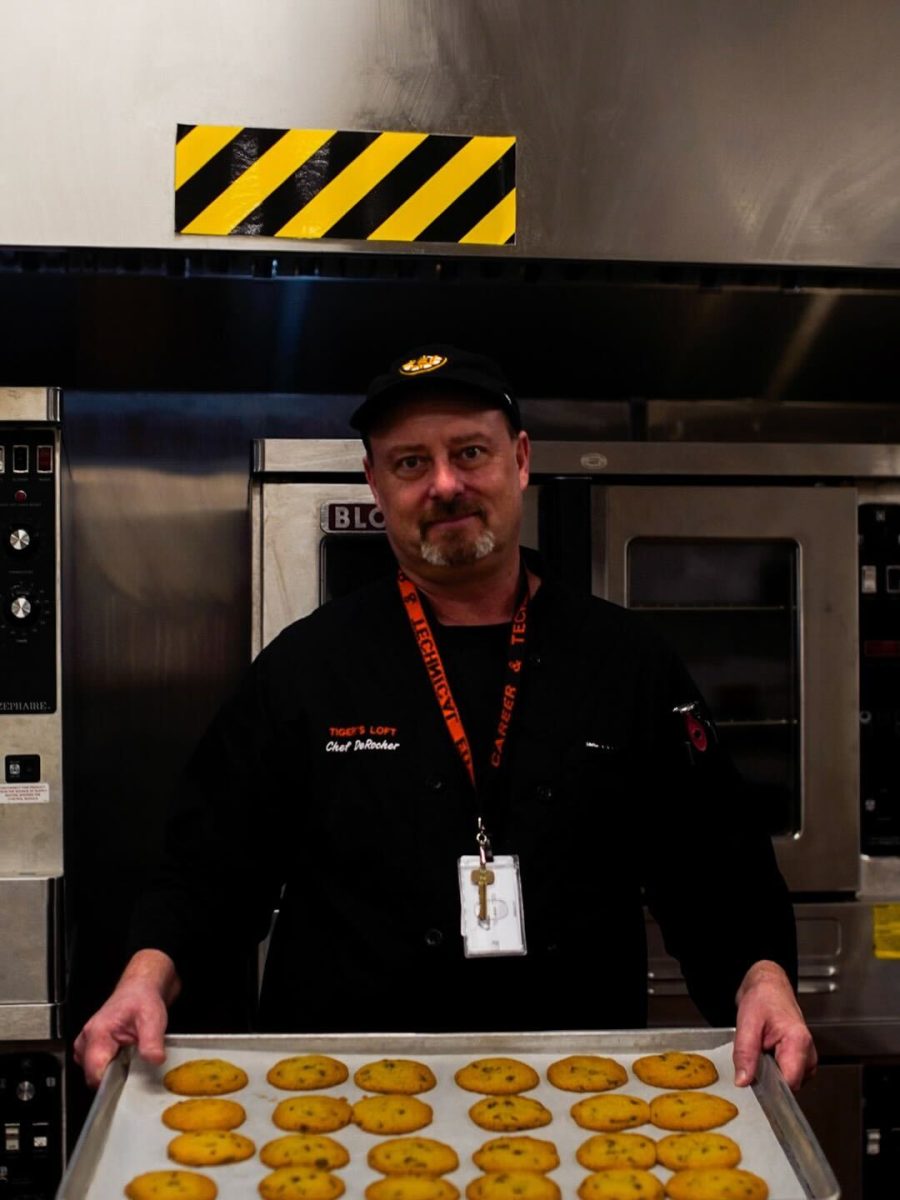by Lucy Lu
Determined to combat the high levels of stress and anxiety she observes among the students who frequent her office, nurse Maureen Pursley has enlisted the help of a new and unlikely friend: 16-week-old toy poodle, Bailey, who now serves as a “comfort dog” at North.
“Almost everyone just lights up when they see Bailey or other dogs,” said guidance counselor Shani Leichter, who hosts Bailey in her office for part of the school day every Tuesday and Thursday. “It makes the day better and brighter based on what I see and hear.”
Indeed, according to Pursley, petting a dog decreases heart rate and releases “feel-good” hormones. Pursley originally became familiar with the technique of “pet therapy” in professional development courses focused on mental health, and she subsequently received permission from the health department and from interim principal Mark Aronson to pilot the practice at North.
Bailey has quickly become popular among students.
“I appreciate that this dog is just like any other puppy, and I think many other students do too, said sophomore Madi Roach. “It doesn’t feel like you’re using him or that he has a job to perform; it makes the playfulness and affection genuine.”
In spite of — or perhaps because of — the fact that Bailey appears simply as a regular puppy, some guidance counselors deliberately include Bailey in their counseling sessions to provide a better experience for students.
Leichter incorporates Bailey into her professional practice to help reduce anxiety and stress in the North community.
“I had wanted to use pet therapy… for as long as I can remember,” she said. “Bailey is a great, non-anxiety provoking way to start conversations and open lines of communication.”
Students and staff visit and interact with Bailey at all times of day, in all areas of the building. He spends time with a girls’ group after school, goes on walks in the morning, and plays in the afternoon. Counselors can even sign up to take Bailey for certain blocks when they are meeting with students.
Bailey takes a break from his busy schedule during lunch block, but students can still visit him in his room at the health office, which is now filled with cushion beds and puppy toys.
Pursley chose a toy poodle over other breeds because of its small size and hypoallergenic coat. Poodle breeds are also known to be one of the smartest, fastest-learning breeds, according to Pursley. Above all, “toy poodles are ‘people dogs,’” said Pursley. “He is still the playful puppy he naturally is when he’s exposed to kids in Plowshares, the adults in this building, the adolescents in this building.”












































